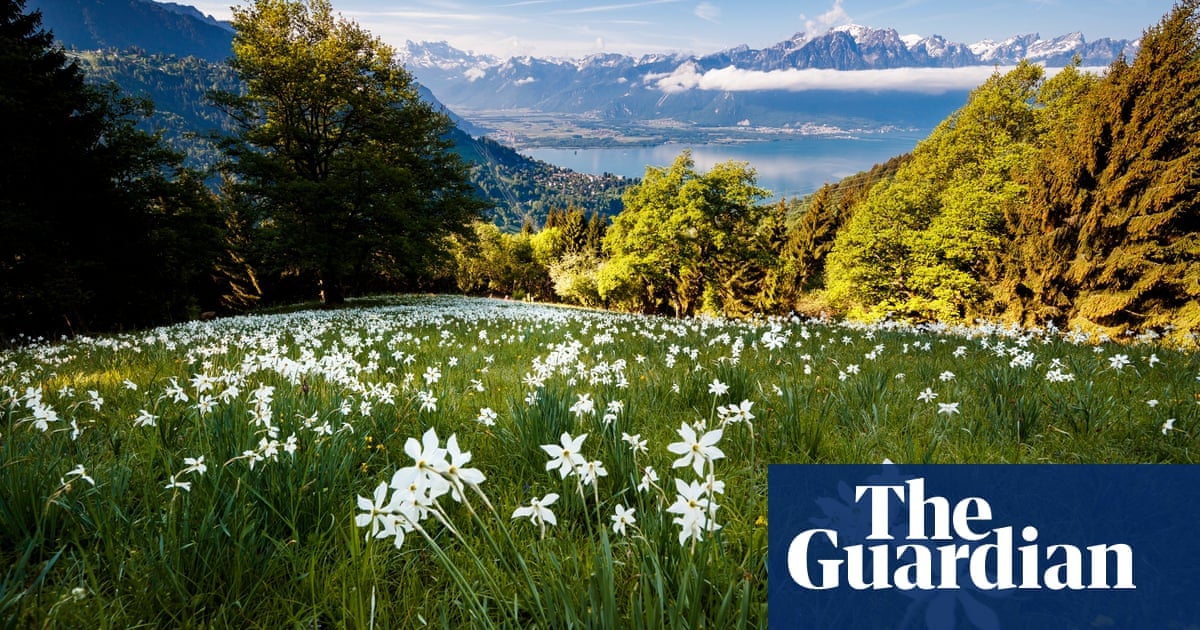Plan aimed to expand protection of endangered ecosystems, but opponents said it posed risk to business development
Voters in Switzerland have rejected a proposal to make authorities do more to protect natural habitats from pollution and development, preliminary results of a referendum have showed.
The biodiversity initiative, which the Swiss government and parliament had already rebuffed, envisaged changing the law to set aside more land for conservation beyond areas that were already protected.
The initiative has been closely watched by conservationists outside Switzerland, at a time when concerns about global loss of biodiversity are growing. The proposal also intended to increase protections for endangered ecosystems in a country renowned for its lakes and snow-capped mountains.
In one of Switzerland’s traditional exercises of direct democracy, more than 60% of voters rejected the plan, according to a projected result published by the national broadcaster SRF. By mid-afternoon, the initiative had been rejected by too many cantons to pass, an official tally showed.

Posed a risk to business development. Don’t learn that from the USA.
I think they have a long history of privileging business over ethics.
And they still have the gold of questionable origin to prove it.
Think about the
childreneconomy.You do need to think about the economy, though. People aren’t going to accept environmental regulations that will significantly impact their quality of life, that has to be taken into account if you are in a democracy.
They don’t consider it when they make decisions. Politicians use fear. Also, I hate to tell you, if the planet dies then we might have a bigger problem then the economy.
The point is that normal folks will not accept a reduced standard of living, or greater instability in their home and career for long term ecological benefits.
Even the perception of this risk (as you mention “political fear”) is just as powerful a driver.
“The planet dying” doesn’t seem like a real risk to someone worried about their income “dying”.
No you are 100% correct that “normal people will not accept a reduced standard of living.” Mainly because we live in a capitalistic society and politicians play down the middle. You have to consume for the system to work.
Counterpoint: people are already having a change in standard of living.
Look at how hot it is, the available fruits/vegetables by season, cost of utilizes, rising taxes due to natural disasters, fighting over resources, new diseases, lack of fresh water, being denied housing insurance, etc… The list can literally go on. We are not reducing are living but instead sticking our heads in the sand and wishing it away.
Politicians are still drilling or fracking because “I might lose the election,” and then tell people we have to do all this.
Implement educating the population about what is happening just like the ozone. We changed those policies pretty quick. Even if other countries denied it was an issue.
You can rest assured that, without fail, whenever there is a story about another Western country doing something bad, someone in the comments section is going to unnecessarily shit on the US. Bonus points for this one because it’s basically blaming the US for “teaching” them this.
63.03% rejecting it is less than I had expected. I was expecting 70% or more, so maybe there is hope for the matter to be reiterated upon in the coming years.
The headline makes it seem way more clear than the issue actually is. As for me, I took issue with the bill potentially preventing more green energy projects which we are severely lacking, aside from hydro. Though I am very unhappy with the argument that we need to not block economic development since I am all for regulations in that sector, just not sweeping ones.
To be fair, business development wasn’t the main hangup for many of the people I know. The two main reasons I heard (and partly raised myself), was firstly the detrimental effect on expanding solar- & wind-energy-production. And secondly overreaching, i.e. not limiting the protection to the environment, but also include townscape protection and historical sites, essentially further restraining residential development (including changing them into more dense usage) in a time where living space is scarce and expensive.
When the pro-side has its reservations, then of course it doesn’t help that the executive (Federal Council) is dominated by pro-corporate ideology and have brought forward arguments of “damaging the business location”. But making it out to be the only reason is just dishonest.
switzerland will be leveled by nature. it’ll be a flat parkinglot nobody will use inhabitet by people nobody likes. let us end schengen so EU isnt bothered by them anymore.
Removed by mod







